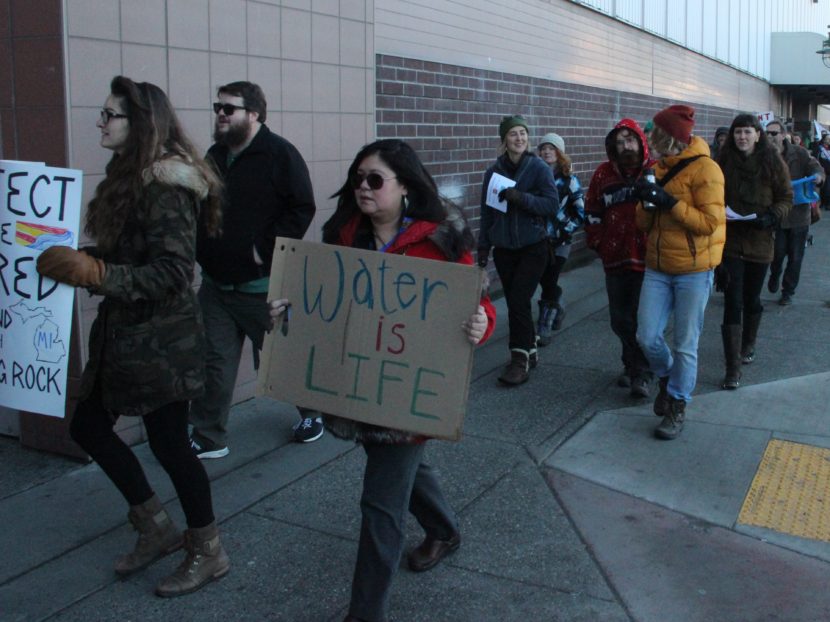
Alaskans joined protesters around the country Tuesday staging demonstrations against the Dakota Access pipeline project, including two in Anchorage.
The Standing Rock Sioux Tribe objects to the project in North Dakota because they worry it will harm their water supply and disturb sacred sites. Their cause has drawn support from Native and environmental groups nationwide.
Monday evening, the U.S. Army Corps of Engineers continued their hold on the Dakota Access pipeline project, saying “additional discussion and analysis are warranted.” The decision isn’t final, however, and protests went ahead as planned.
In downtown Anchorage, about 50 demonstrators gathered at Town Square Park and marched to a local branch of Wells Fargo, chanting, “water is life.” The demonstrators protested the bank for financing the project.
Kirby Spangler is with the environmental group Alaska Rising Tide. He helped organize the demonstration. Spangler said he was there for two reasons: to protest fossil fuel development because he’s concerned about climate change and to support indigenous rights, “both of which have huge implications for Alaska’s future,” he said.
Lisa Wade of Chickaloon Village had just returned from North Dakota after visiting the protests there. She said Alaska Native people recognize the Standing Rock Sioux Tribe’s concerns.
“I think that we are facing a lot of the same issues,” Wade said. “We are facing resource extraction here that impacts a lot of indigenous peoples’ lands.”
Protesters marched from Town Square Park to the Wells Fargo branch in the Anchorage 5th Avenue Mall, where Wade closed two bank accounts. Police officers arrived to monitor the scene, but after about half an hour, the protesters left the building peacefully and no arrests were made.
In an emailed statement, Wells Fargo’s Alaska spokesman, David Kennedy, said the bank “respects the differing opinions involved in this dispute.” He said the bank is taking a look at issues the situation in North Dakota has raised, but added Wells Fargo doesn’t comment on its relationships with specific customers.
The bank does business only with companies that comply “with all applicable federal, state and local laws and regulations,” Kennedy said.
Elizabeth Harball is a reporter with Alaska's Energy Desk, covering Alaska’s oil and gas industry and environmental policy. She is a contributor to the Energy Desk’s Midnight Oil podcast series. Before moving to Alaska in 2016, Harball worked at E&E News in Washington, D.C., where she covered federal and state climate change policy. Originally from Kalispell, Montana, Harball is a graduate of Columbia University Graduate School of Journalism.




